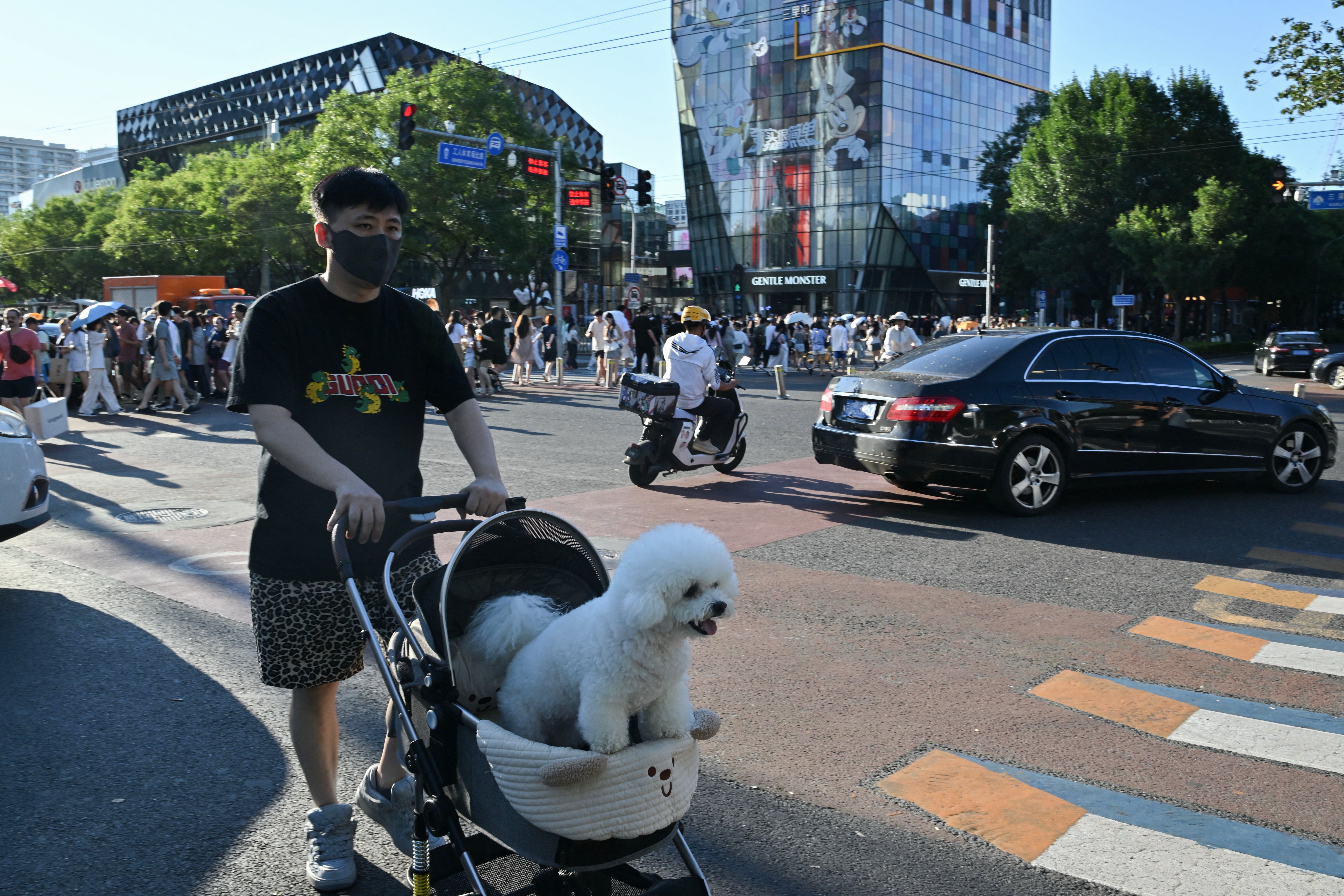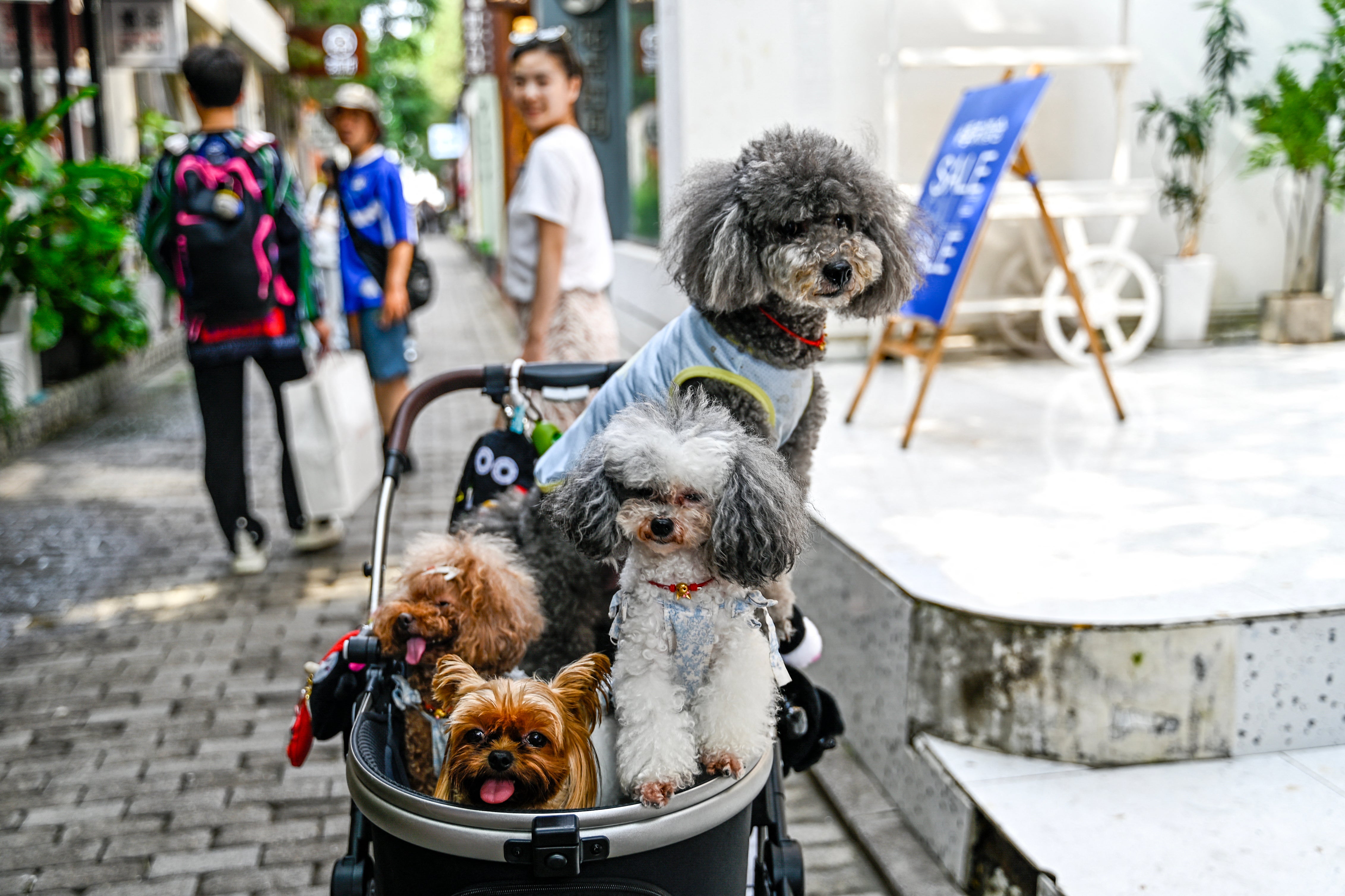In Wuhan, China, one hotel is offering a surprising twist on the traditional guest experience: dogs as the ultimate room service.
For 499 yuan (£51) a night, visitors to the Country Garden Phoenix Hotel can share their room with a golden retriever, husky, or West Highland terrier, all trained and vetted to provide comfort and company to pet-loving guests, a report in China Daily stated.
The service, which began quietly in July, has quickly gained traction among domestic travellers, with over 300 people signing up in the first few weeks, the hotel’s general manager, identified as Mr Dong, told China Daily.
For many guests, it brings warmth to their lonely stays and a brief but meaningful connection with a pet, all without the responsibilities of ownership.
The service comes as part of the rapidly expanding pet economy in China, where urban pet ownership has surged in the last few years. As of 2024, the country’s urban pet supplies market reached a staggering 300.2bn yuan (£30bn), marking a 7.5 per cent increase year-on-year, reported The Global Times.
The number of urban pets has climbed to 124 million and is expected to surge further, with the market predicted to hit 400bn yuan (£41bn) by 2027, according to the China Pet Industry White Paper 2025.
This shift has seen a boost in pet-related services and products, including pet cafés, specialised grooming, dog yoga, pet cloning, and now, rentable hotel dogs.

“I was initially concerned that the puppy might be too energetic,” one traveller, who asked to remain anonymous, said. “But it was gentle and well-behaved. The moment I called its name, it came running.”
To opt into the programme, guests must book one of the hotel’s “pet-themed” rooms and then choose their dog for the night after signing a formal agreement.
The hotel currently “employs” 10 dogs, which are a mix of retrievers, terriers, and huskies, all selected for their calm temperament. Some are raised by the hotel itself, while others are brought in by private owners or training institutions.
The primary idea behind the programme is to give the dogs a form of meaningful stimulation while providing guests with emotional comfort, particularly those who love animals but cannot keep them at home due to living conditions, work hours, or rental restrictions.
The hotel says dogs have health evaluations and assessments for behavioural issues before being used in the scheme, as well as being trained to follow basic commands.
The programme was “perfect” for owner Ms Fang, who sent her 14-month-old Samoyed Naicha to the hotel earlier this summer.
“I used to send Naicha to pet cafés so it wouldn’t get lonely when I am at work. Left alone at home, Naicha will get restless, chew furniture and need an energy outlet,” she said, adding that the hotel staff regularly send her videos showing Naicha interacting with guests or playing with hotel workers and other dogs.

While the concept is appealing on paper and has generally been well-received, there have been some concerns.
Legally, the hotel would bear full liability for any harm caused by the dogs, unless a guest acted with gross negligence or deliberately provoked the animal, lawyer Du Xingyue of Shanghai Yingdong Law Firm told the South China Morning Post.
They advised that hotels offering such services should hire professional trainers, improve staff readiness for pet-related emergencies, and ensure that the dogs’ temperaments are thoroughly assessed.
Despite government efforts to increase the country’s fertility rate, pets now outnumber young children in China. In 2024, China officially had more pets than children under the age of four, according to a Goldman Sachs report cited by Xinhua News Agency. The report estimated that one in every eight urban residents in China now owns a pet, underscoring the country’s changing demographics and lifestyle preferences.






